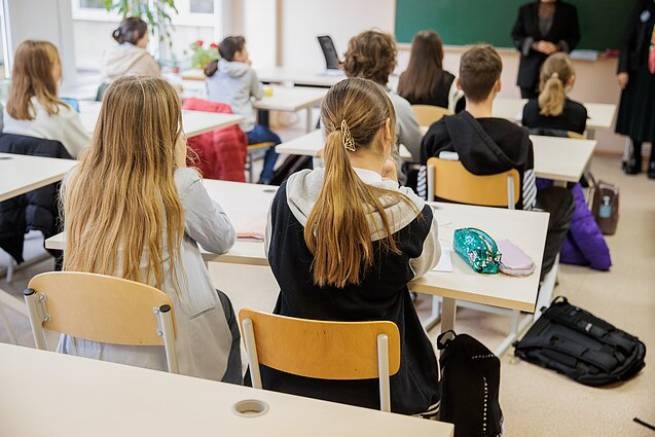The European Parliament took care of the health of the “weaker sex” on the eve of March 8, International Women’s Day.
The European Parliament has called for the first dedicated study of only women in Europe to determine the impact of the pandemic on various aspects of their lives. The results of the study show a significant impact of her both personally and professionally, as well as a serious increase in cases of violence against women, reports iefimerida.gr.
Violence
Three out of four women (77%) in EU believe that the COVID-19 pandemic has led to an increase in physical and psychological violence against the weaker sex. In 25 of the 27 EU countries (excluding Finland and Hungary) this percentage is over 50%, with Greece reaching 93% and Portugal 90%.
The picture is clear in terms of the measures that respondents believe are being taken to combat violence against women: making it easier to report incidents of violence, including to the police (58%), giving women more opportunities to seek help, for example through hotlines (40%), raise awareness and train police and judiciary on this issue (40%), and strengthen women’s financial independence (38%).
Economic consequences
38% of women at EU level say the pandemic has negatively impacted their personal income. Interest rates range from 18% in Denmark to 60% in Greece. 44% of women surveyed also report that the COVID-19 pandemic has negatively impacted their work-life balance. This applies to more than half of the women in Cyprus (68%) and Greece (59%), who occupy the two highest positions on the list, followed by Malta (58%), Luxembourg (56%), Italy (52%), Portugal (52%) and Hungary (51%).
In addition, 22% of women think or have already decided to permanently reduce the time they spend at work. It is worth noting that 31% of women surveyed in Greece believe that because of the pandemic they have become more financially dependent on their partners, while the European average is 19%.
mental health
Since the start of the pandemic, women are more likely to feel anxious or miss their friends and family (44%), feel anxious and stressed (37%), and generally worry about their future (33%).
62% of Greek women also worry or miss their friends and relatives, and 59% experience stress and anxiety. However, in third place, half of the Greek women surveyed ranked the feeling of being “imprisoned” at home (54%), which distinguishes Greece’s results from the European average (30%).
There is a strong perception among women that the measures taken against the pandemic have had a significant impact on their mental health: by 41% across Europe, significantly more in Greece – by 58%.
The survey also showed that some populations were more affected than others, depending on the type of measures introduced: about half of women with children under the age of 15 said school and daycare closures had severely affected their mental health.
What can women expect from the European Parliament?
Women in the EU believe that in this context, the European Parliament should consider as a priority: toughening the fight against the elimination of the phenomenon of “human trafficking” and sexual exploitation of women and children (47% in the EU and 60% in Greece), psychological and physical abuse.
Compared to EU women, the wage gap between women and men in Greece is quite large. Which has a negative impact on professional development (41%), and also causes great difficulties, for example, the inability to combine personal life and career (31% in the EU).
European Parliament President Roberta Metzola, referring to the results of the survey, said: “Women are suffering the most from the situation that has developed in the world (COVID-19 pandemic), psychologically and financially. This must stop. Parliament is working on it.”






More Stories
Highway E65: how long does the Athens-Kalambaka journey take, toll
"Tax" for fire protection of real estate
The first non-state medical school in Greece